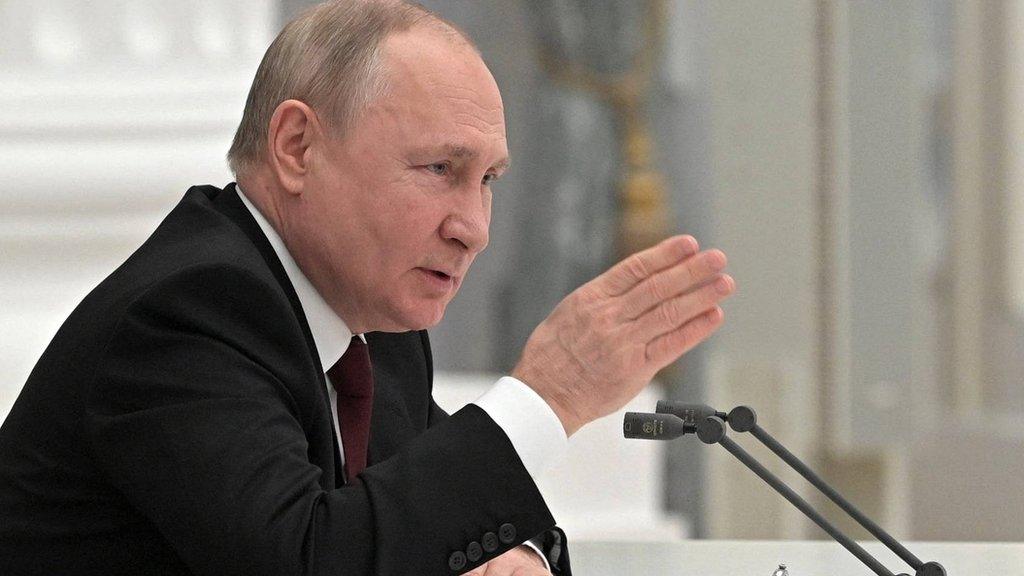Ukraine conflict world reaction: Sanctions, refugees and fears of war
- Published
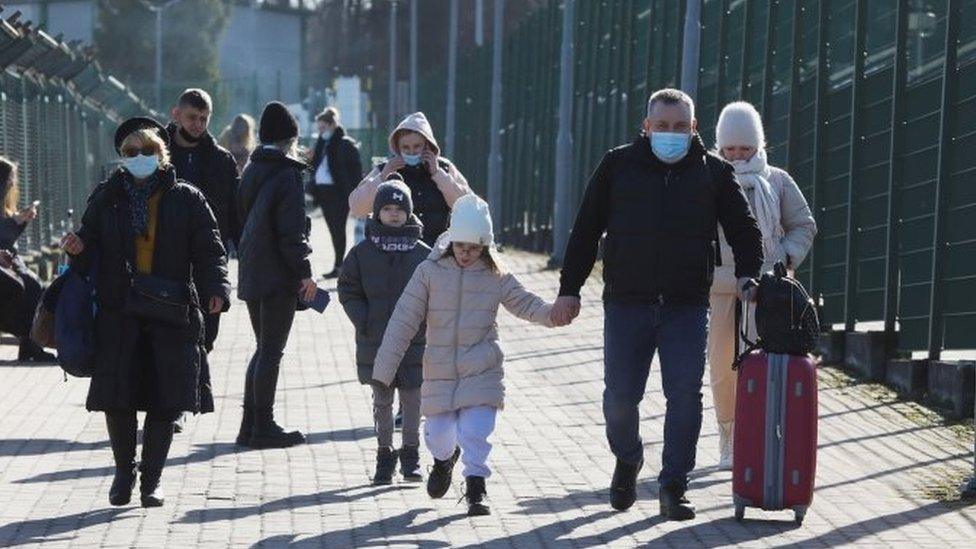
The Poland-Ukraine border. Poland is setting up reception points for expected refugees
Major Western nations have reacted with outrage at Russia's invasion of Ukraine, accusing it of bringing war back to Europe.
France's Emmanuel Macron said this was a "turning point in the history of Europe", with the G7 group of nations vowing to impose severe sanctions.
In eastern Europe, the fears extended to coping with a wave of refugees.
But China bridled at the word invasion and joined those nations focusing more on their citizens' safety.
Ukraine says Russia is carrying out a full-scale attack from many directions, but the details of the assault and the number of casualties are not yet clear.
Russian President Vladimir Putin has spoken of a "special military operation" aimed at the demilitarisation and "denazification" of Ukraine, but his overall goals also remain unclear.
The uncertainty has not stopped an angry and defiant response from Western allies.
'Bitter price' - US, UK, EU and G7
A largely united voice spoke out with condemnation and promises of sanctions.
US President Joe Biden said: "President Putin has chosen a premeditated war that will bring a catastrophic loss of life and human suffering."
European Commission chief Ursula von der Leyen said Mr Putin was "responsible for bringing war back to Europe".
UK PM Boris Johnson said Mr Putin had "chosen a path of bloodshed and destruction" with an "unprovoked attack".
German Chancellor Olaf Scholz also reacted angrily, calling this "Putin's war" and saying the Russian leader would pay a "bitter price" for his "serious error".

Russia attacks Ukraine: More coverage
THE BASICS: Why is Putin invading Ukraine?
FROM KYIV: "There is no safe place any more"
FROM MOSCOW: Shock and support in Russian capital
IN MAPS: How Russia carried out the invasion

The G7 - the US, Japan, Germany, Britain, France, Italy and Canada - vowed in a joint statement to bring forward "severe and co-ordinated" sanctions.
The EU bloc will have more of them, which Ms Von der Leyen said would "weaken Russia's economic base and its capacity to modernise".
But there remains huge concern at what could happen next.
One German minister spoke of a "land war in Europe that we thought was only to find in history books", while another, Interior Minister Nancy Faeser, said Germany would help neighbours if there was a "large-scale influx" of refugees.
'Dire consequences' - Eastern Europe
That concern is also shared by Ukraine's neighbours, but many were also scrambling to shore up their own security.
The president of Lithuania, a Nato member, said he was going to impose a state of emergency.
A similar decree has been issued by Moldova further south. Dozens of cars were reportedly queuing on the border with Ukraine, with Moldova saying it would accept tens of thousands of refugees.
Romania said it could take half a million.
Poland is setting up reception points for refugees. It told Russia to end its attacks and leave Ukraine alone.
Georgia - which fought Russia in 2008 over disputed regions - backed Ukraine, saying the Russian attack would have "dire consequences" for the international community.
Russia's ally, Belarus, said it was not taking part in the military action, but would consider it if asked. Belarus has hosted Russian troops during the crisis, and they crossed from the country into Ukraine as part of the attack.
Ukraine has asked Nato member Turkey to close the Bosphorus and Dardanelles straits to Russian ships.
Turkey will consider the request but shares friendly ties with both nations, and said it was "sincerely saddened" that they had come "face-to-face".
'Typical Western question' - China
There has been a lot of interest in how China would respond. Its initial response was to call the word invasion a "typical Western media question method", with the foreign ministry saying "we won't go rushing to a conclusion".
Senior diplomat Wang Yi said China understood Russia's security concerns.
China and Russia now have a strategic partnership aimed at countering US influence, sealed when Mr Putin and President Xi Jinping met just before the Winter Olympics in Beijing.
China told its citizens in Ukraine to fly a Chinese flag to try to protect themselves.
WATCH: Footage from Ukraine shows explosions, a missile strike and a helicopter under fire
'Egregious behaviour' - Other nations
United Nations chief, António Guterres, urged Vladimir Putin to halt the attack "in the name of humanity".
A US-led draft resolution will demand Russia leaves Ukraine "immediately, completely, unconditionally", although Moscow has the power to veto it.
South Korea condemned the attack, saying it would join international economic sanctions.
And Australia will expand those it has already enforced. There must be "a cost for this violent, unacceptable and egregious behaviour", Prime Minister Scott Morrison said.
India has focused on trying to keep its citizens inside Ukraine safe, although media reported that PM Narendra Modi could talk later to Mr Putin in a possible role as mediator.
Iran called for a political solution, with its foreign minister blaming Nato provocations for the Ukraine crisis.
- Published23 February 2022
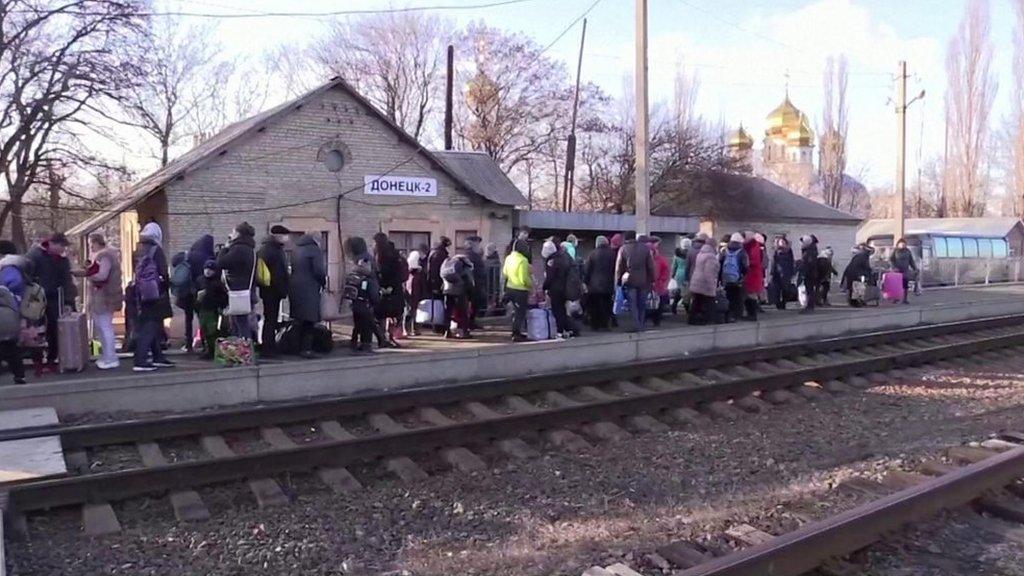
- Published23 February 2024
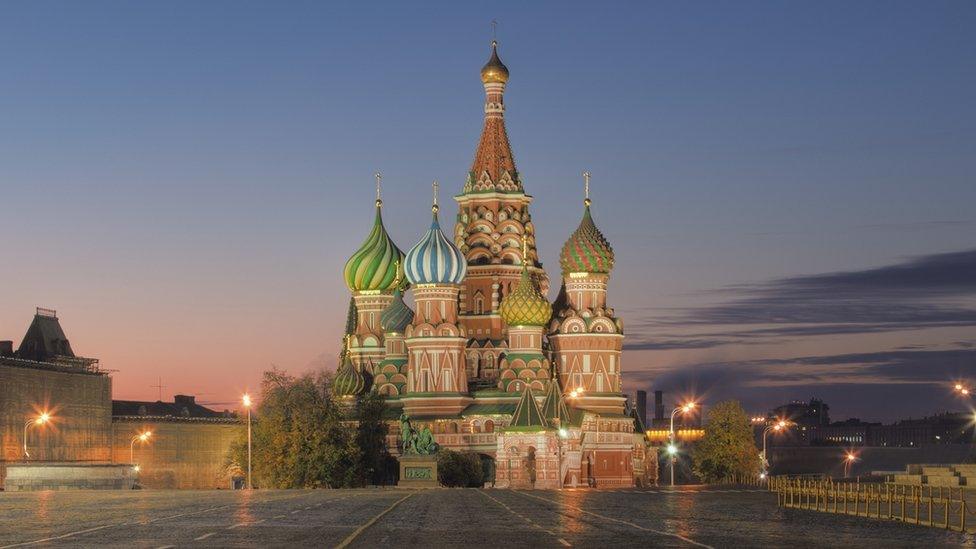
- Published24 February 2023
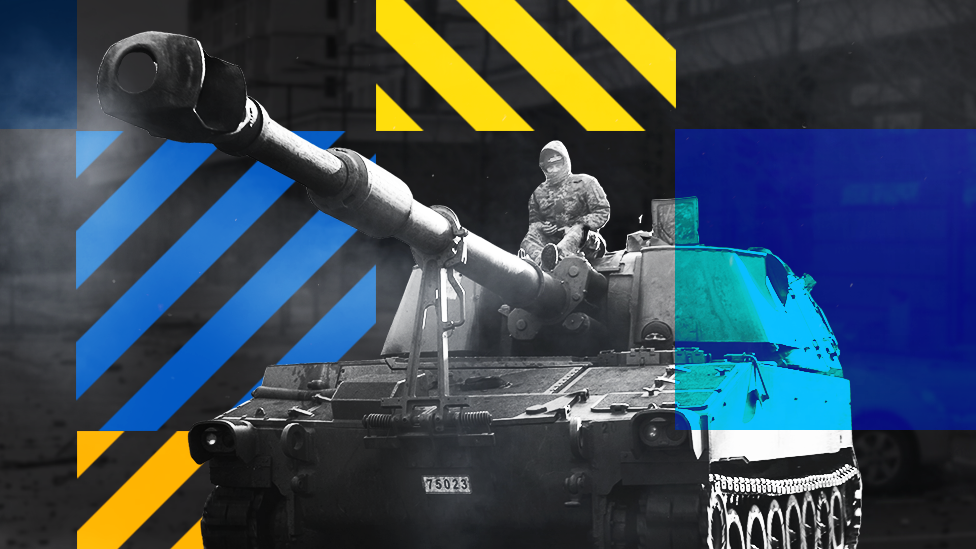
- Published22 February 2022
